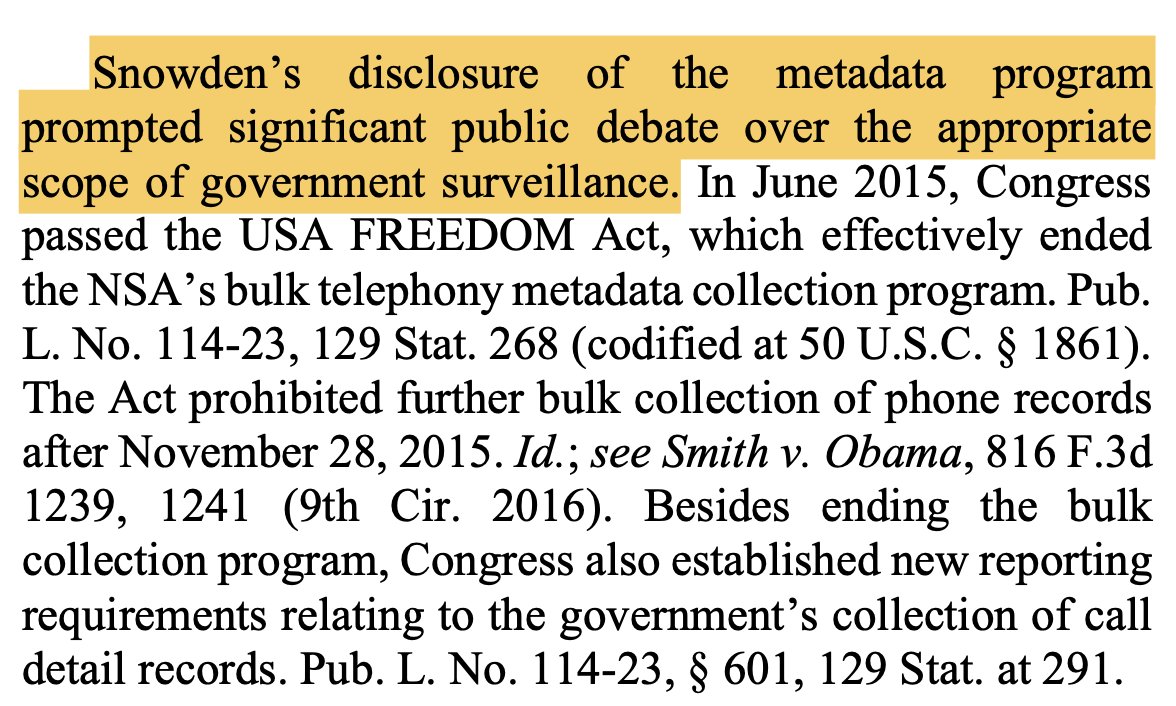This is a disturbing development.
Last Friday, Facebook sent a cease-and-desist letter to two NYU researchers (@LauraEdelson2 and Damon McCoy), demanding that they shut down their research into political ads and disinformation on FB’s platform.
wsj.com/articles/faceb…
Last Friday, Facebook sent a cease-and-desist letter to two NYU researchers (@LauraEdelson2 and Damon McCoy), demanding that they shut down their research into political ads and disinformation on FB’s platform.
wsj.com/articles/faceb…
The researchers (w/ the help of others) are responsible for a browser plug-in called Ad Observer, which allows FB users to voluntarily share very limited and anonymous data about the political ads that FB shows them. You can read about Ad Observer here:
adobservatory.org
adobservatory.org
You may already know that Facebook itself publishes data about political ads on its platform. but Facebook’s archive is missing a crucial piece of data:
FB has consistently refused to publish anything about how the ads are *targeted*.
FB has consistently refused to publish anything about how the ads are *targeted*.
This data is key, researchers say, to studying the ways in which Facebook’s targeting of political ads may discriminate on the basis of race or other protected characteristics, or may contribute to the polarization of political debate online.
techcrunch.com/2020/10/16/we-…
techcrunch.com/2020/10/16/we-…
The NYU researchers have tried to fill that gap, offering the Ad Observer plug-in to users who want to voluntarily donate the ads they see — along with the limited targeting data FB displays to users.
Using the data donated to them, the researchers have conducted essential research and enabled investigations by other researchers who also rely on the data.
For example, Ad Observer data was recently relied upon in an investigation into misleading ads on Facebook touting “Trumpcare,” which doesn’t exist.
propublica.org/article/trumpc…
propublica.org/article/trumpc…
Here’s where things get troubling: Facebook is now trying to shut down the Ad Observer plug-in, saying that it violates Facebook’s terms of service by automating the collection of data that Facebook shows to its users. 

According to Facebook, Ad Observer compromises the privacy of Facebook’s users, but this is a pretty ridiculous claim. The plug-in’s users voluntarily sign up to donate data about the ads they see, and the plug-in does not share any personally identifying information.
As Laura Edelson (one of the NYU researchers) likes to say, Ad Observer enables “citizen science,” by enlisting the support of the public in studying the pathologies of political discourse. It enables user choice.
Facebook should embrace this model of independent research on the platform. In fact, at one point it did — specifically praising the work of Laura and Damon during an earlier iteration of their investigations into FB ads.
nytimes.com/2018/07/17/tec…
nytimes.com/2018/07/17/tec…

Unfortunately, Facebook has chosen instead to threaten researchers who are trying to study political disinformation, just days before a presidential election awash in lies and distortions.
And even more unfortunately, this isn’t the first time Facebook has tried to shut down independent research into the platform.
https://twitter.com/AlexanderAbdo/status/1090297962146729985
Facebook very obviously wants to control the narrative. It claims to support research into how its platform is affecting society, but its efforts have been glacial and inadequate. 

If Facebook were truly committed to research into its platform, it would create a safe harbor within its terms of service for research that is manifestly in the public interest and that protects user privacy. We proposed just that two years ago.
knightcolumbia.org/content/knight…
knightcolumbia.org/content/knight…
Facebook declined.
Full disclosure: We (@knightcolumbia) now represent Damon and Laura in their response to Facebook’s cease-and-desist letter. Here’s our statement on the matter.
knightcolumbia.org/content/resear…
knightcolumbia.org/content/resear…
• • •
Missing some Tweet in this thread? You can try to
force a refresh







